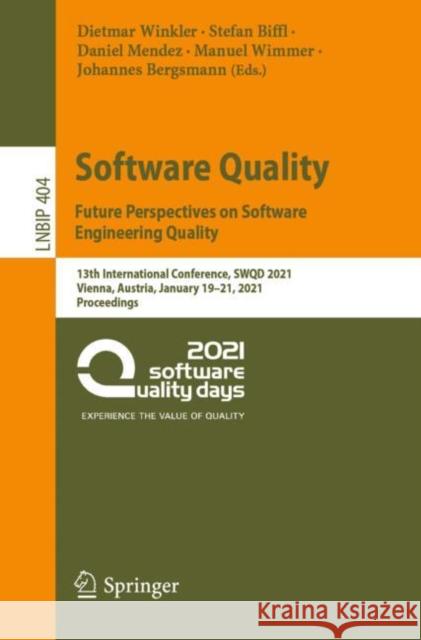Software Quality: Future Perspectives on Software Engineering Quality: 13th International Conference, Swqd 2021, Vienna, Austria, January 19-21, 2021, » książka
topmenu
Software Quality: Future Perspectives on Software Engineering Quality: 13th International Conference, Swqd 2021, Vienna, Austria, January 19-21, 2021,
ISBN-13: 9783030658533 / Angielski / Miękka / 2020 / 159 str.
Software Quality: Future Perspectives on Software Engineering Quality: 13th International Conference, Swqd 2021, Vienna, Austria, January 19-21, 2021,
ISBN-13: 9783030658533 / Angielski / Miękka / 2020 / 159 str.
cena 261,63
(netto: 249,17 VAT: 5%)
Najniższa cena z 30 dni: 250,57
(netto: 249,17 VAT: 5%)
Najniższa cena z 30 dni: 250,57
Termin realizacji zamówienia:
ok. 16-18 dni roboczych.
ok. 16-18 dni roboczych.
Darmowa dostawa!
Kategorie:
Kategorie BISAC:
Wydawca:
Springer
Seria wydawnicza:
Język:
Angielski
ISBN-13:
9783030658533
Rok wydania:
2020
Wydanie:
2021
Numer serii:
000354981
Ilość stron:
159
Waga:
0.25 kg
Wymiary:
23.39 x 15.6 x 0.94
Oprawa:
Miękka
Wolumenów:
01
Dodatkowe informacje:
Wydanie ilustrowane











